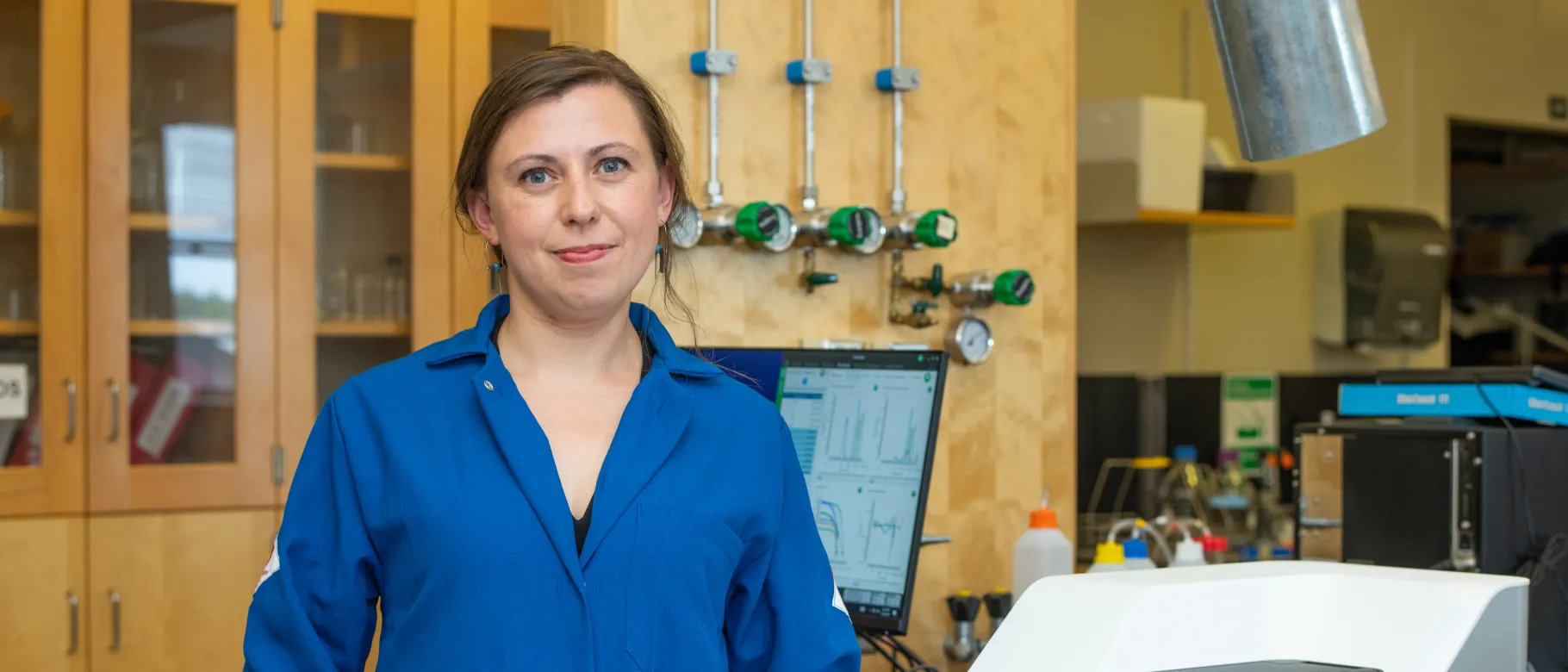UNE’s Eva Rose Balog delivers ‘genius’ presentation to audience of Maine science enthusiasts

Eva Rose Balog, Ph.D., associate professor of chemistry in the University of New England College of Arts and Sciences, was a headliner at the 2024 Maine Science Festival in Bangor, where she shared her research contributions to the field of protein engineering and its benefits to human health.
The Maine Science Festival, hosted by the Maine Discovery Museum, brings together the state’s top researchers — as well as academics, students, and lay audiences — to celebrate and explore the remarkable science, engineering, mathematics, and technology happening in Maine every day.
Balog’s research interests lie in developing protein sensors to improve quality control in cell and tissue biomanufacturing. Her presentation at the festival was held as part of the “5-Minute Genius” series, which aims to raise awareness of Maine’s exceptional research to the general public.
In her talk, Balog discussed the role of proteins in natural materials and their implications for engineering biology. She outlined her lab’s methods for creating proteins for the development of polymers that can influence drug delivery and tissue engineering.
“It was an honor to be part of this event, especially in Bangor — close to where I grew up,” Balog reflected, adding that she would have loved to attend the event had it been around during her childhood. “Outreach to different audiences is a skill that takes practice like any other and one that I have been actively working on, so opportunities like this are excellent for getting out of my comfort zone as a scientist and professor. The questions and engagement from the audience were great.”
Balog is a well-known fixture of UNE’s research ecosystem, having secured grant funding from the National Science Foundation to bolster Maine’s biotechnology industry, serving as one of three inaugural members of the Portland Laboratory for Biotechnology and Health Sciences, and representing CAS as one of four project leaders in the newly launched Center for Cell Signaling Research (CCSR), UNE’s second National Institutes of Health-funded Center of Biomedical Research Excellence.
Balog’s research in the CCSR will focus on methods for improving wound healing through newfound techniques in regenerative medicine. The development of biomaterials to promote proper wound healing, she said, can help reduce a patient’s risk of infection and improve their quality of life.